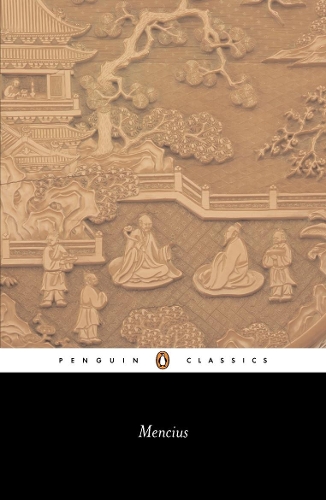
Mencius
(Paperback)
Publishing Details
Mencius
By (Author) Mencius
Translated by D. C. Lau
Introduction by D. C. Lau
Notes by D. C. Lau
Penguin Books Ltd
Penguin Classics
2nd December 2004
28th October 2004
United Kingdom
Classifications
General
Non Fiction
181.112
Physical Properties
Paperback
304
Width 129mm, Height 198mm, Spine 17mm
226g
Description
Mencius was one of the great philosophers of ancient China, second only in influence to Confucius, whose teachings he defended and expanded. The Mencius, in which he recounts his dialogues with kings, dukes and military men, as well as other philosophers, is one of the Four Books that make up the essential Confucian corpus. It takes up Confucius's theories of jen, or goodness and yi, righteousness, explaining that the individual can achieve harmony with mankind and the universe by perfecting his innate moral nature and acting with benevolence and justice. Mencius' strikingly modern views on the duties of subjects and their rulers or the evils of war, created a Confucian orthodoxy that has remained intact since the third century BCE.
Author Bio
Mencius (372-298 BC) was one of the greatest Chinese philosophers, focusing on political theory and practice. Mencius, like Confucius, believed that rulers were divinely placed in order to guarantee peace and order among the people they rule. Unlike Confucius, Mencius believed that if a ruler failed to bring peace and order about, then the people could be absolved of all loyalty to that ruler and were justified to revolt. D. C. Lau is a Professor at the University of Hong Kong.
